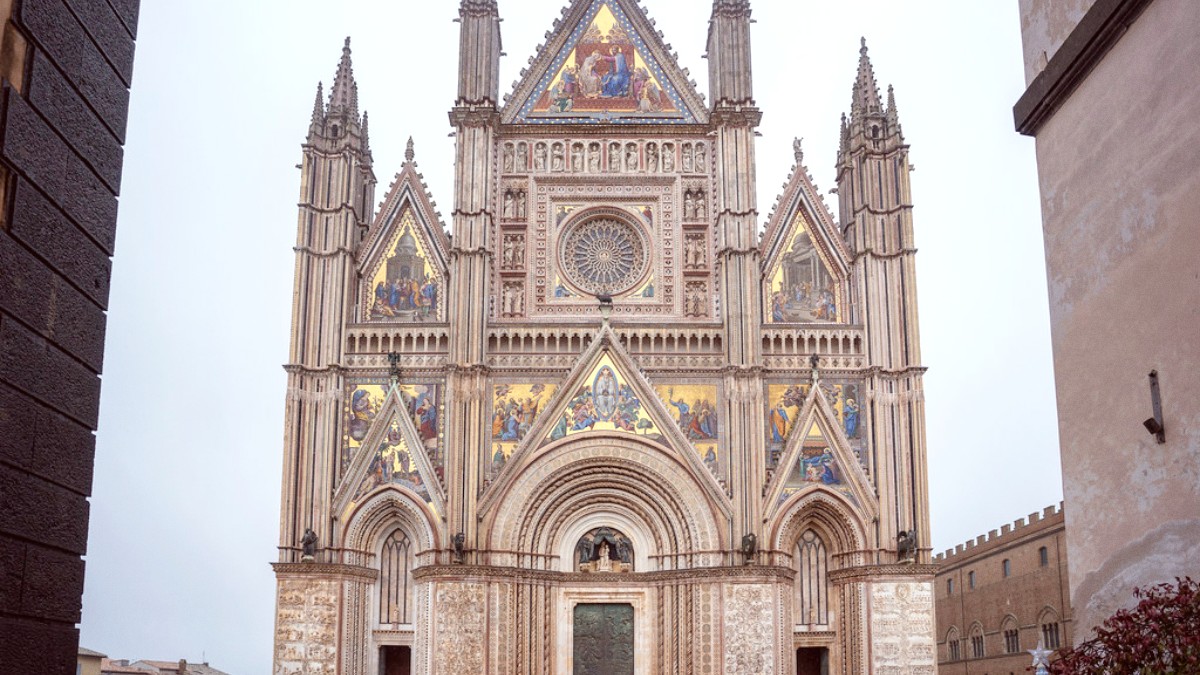
Umbria And Le Marche, Italy
TIM, Vodafone, and WindTre are Italy's main mobile providers. You can purchase a local SIM card (or eSIM, if your phone supports it) from their stores upon arrival. Your passport is needed for registration. Prices generally offer ample data, suitable for navigation, browsing, and calls. This option commonly presents more value than international roaming from your home country. Ensure your phone is unlocked before travel if you plan to use a local SIM.
Wi-Fi is widely available in Orvieto. Most hotels, B&Bs, and many restaurants and cafes extend free Wi-Fi for their guests or customers. Public Wi-Fi hotspots also exist in some historic center areas, frequently around main squares. Look for signs or ask staff for the network name and password.
Italian is the official language. While many tourist-facing individuals (hotel staff, museum workers, some restaurant servers) speak some English, it appears less common among the general population, especially in smaller shops or daily interactions. (Rosetta Stone) offers language learning.
Learning a few common Italian phrases aids interaction.
Verify your phone's compatibility with Italian networks before departure for smooth communication.
Generally open from 9:00 AM or 10:00 AM to 1:00 PM, then close for a "siesta" and reopen from 3:30 PM or 4:00 PM until 7:30 PM or 8:00 PM. Many smaller shops close Sundays and Monday mornings.
Lunch service typically runs from 12:30 PM to 2:30 PM. Dinner service commonly begins at 7:30 PM and continues until 10:00 PM or later. Many restaurants close between lunch and dinner. Few serve dinner before 7:00 PM. Many close one day a week.
Banks generally open from 8:30 AM to 1:30 PM and then from 2:30 PM to 4:00 PM, Monday through Friday. Weekends are closed. ATMs ("Bancomat") widely appear 24/7, outside bank branches and in other spots.
Operating hours vary seasonally. Generally, they open around 9:00 AM or 10:00 AM and close between 5:00 PM and 7:00 PM. Always check specific times for each site, as they may shift.
Be aware of national public holidays when planning, as many businesses, museums, and services may close or operate on reduced hours. Some smaller businesses, guesthouses, or restaurants may close for parts of the low season (e.g., January/February) or for a summer vacation period (especially in August).
For smooth planning, especially around holidays or during off-peak times, verify specific opening hours for any business or attraction you plan to visit.
Navigating social interactions and cultural expectations.
Show respect through simple greetings.
Dress appropriately for different settings, especially religious sites.
Understand local norms for meals and gratuities.
Be mindful of photography rules and local privacy.
A little understanding of local etiquette greatly elevates your travel experience and fosters positive interactions.
Orvieto's ancient design presents some challenges for travelers with mobility needs.
Orvieto's historic center, with its cobblestone streets, steep inclines, narrow passages, and numerous steps, may prove challenging for those with mobility issues. The natural topography and historical preservation limit widespread modern accessibility infrastructure.
Certain sites and modes of transport cater to mobility needs.
Certain attractions pose greater challenges.
Resources for travelers with visual or hearing needs.
Check individual attraction websites for detailed, up-to-date accessibility information regarding specific sites like museums or historical monuments.
Orvieto VivaContact the local tourism office in Orvieto for personalized advice and information on accessible routes and services available within the city and surrounding areas.
For a smooth journey, especially for travelers with specific mobility needs, advance research into each site's accessibility is recommended.